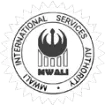ScoreCM Ltd. Know Your Customer (KYC) Policy
1. Purpose
At ScoreCM Ltd., we are committed to complying with all regulatory requirements and protecting our operations from financial crimes such as money laundering and terrorist financing. Our Know Your Customer (KYC) policy is designed to ensure the integrity of our financial system.
2. Scope
This policy applies to all customers and potential customers of ScoreCM Ltd. It outlines the procedures we follow to verify customer identities and ensure legitimate business practices.
3. Key Objectives
Verification of Identity: We verify the identity of all our customers to ensure we know who they are.
Understanding Customer Activities: We strive to understand the nature of our customers' activities to ensure they are legitimate.
Risk Assessment: We assess the risk of money laundering or terrorist financing posed by our customers.
Monitoring: We continuously monitor customer activities for any suspicious behavior.
4. Customer Identification Program (CIP)
Information Collection:
- Full legal name
- Date of birth
- Nationality
- Residential and/or business address
- Identification document (e.g., passport, national ID card)
- Contact information (phone number, email address)
- Verification Procedures:
Verification of identity using reliable, independent source documents, data, or information.
Use of third-party verification services if necessary.
For corporate entities, verification of the legal status of the entity, including ownership and control structure, and the identity of beneficial owners.
5. Customer Due Diligence (CDD)
Customer Due Diligence (CDD) is the process of verifying a customer's identity, assessing their risk profile, and monitoring their transactions for suspicious activity. The level of due diligence required depends on the customer's risk level.
Standard Due Diligence (SDD):
- Applicability: Applied to all customers.
- Purpose: Obtain basic identification information (e.g., name, address, date of birth) and verify its accuracy.
- Monitoring: Ongoing monitoring for suspicious activity.
Enhanced Due Diligence (EDD):
-
Applicability: Applied to high-risk customers, such as:
- Politically Exposed Persons (PEPs)
- Politically Exposed Persons (PEPs)
- Customers from high-risk countries
-
Purpose: Obtain additional information beyond basic identification, including:
- Source of funds
- Source of wealth
- Purpose of the business relationship
- Expected nature and level of transactions
- Monitoring: More frequent and thorough reviews of the customer relationship and their transactions.
Simplified Due Diligence (SDD):
-
Applicability: Applied to low-risk customers, such as those with:
- Small, infrequent transactions
- Established relationships with the institution
- Purpose: Obtain basic identification information and perform less extensive risk assessment.
- Monitoring: Less frequent monitoring compared to standard or enhanced due diligence.
6. Ongoing Monitoring
Continuous monitoring of customer transactions to identify and report suspicious activity.
Regular updates of customer information and risk assessments.
More frequent reviews of high-risk accounts.
7. Risk Assessment
Assessment of the risk level of each customer based on factors such as geographic location, transaction size and frequency, and the nature of the customer’s business.
Use of a risk-based approach to apply appropriate levels of due diligence.
8. Record Keeping
Maintenance of records of all customer identification documents, transaction records, and due diligence processes for at least five years.
Ensuring that records are accessible and can be retrieved promptly upon request by regulatory authorities.
9. Reporting Suspicious Activity
Establishment of procedures for identifying and reporting suspicious activities to the relevant authorities.
Training of all employees to recognize and report suspicious activities.
10. Training and Awareness
Provision of regular training to employees on KYC policies, AML laws, and how to recognize and report suspicious activities.
Updating of training materials as regulations and internal policies evolve.
11. Review and Updates
Regular review and update of the KYC policy to ensure compliance with current laws and regulations.
Incorporation of feedback from regulatory audits and changes in the risk environment.
3 simple steps
-
RegisterChoose account type and complete our fast and secure application form
-
FundFund your live account using a wide range of funding methods
-
TradeStart trading on your live account and access +100 instruments across our platforms
Please review our Legal Documents to understand the risks involved before you invest. See your rights and responsibilities as a retail client.







